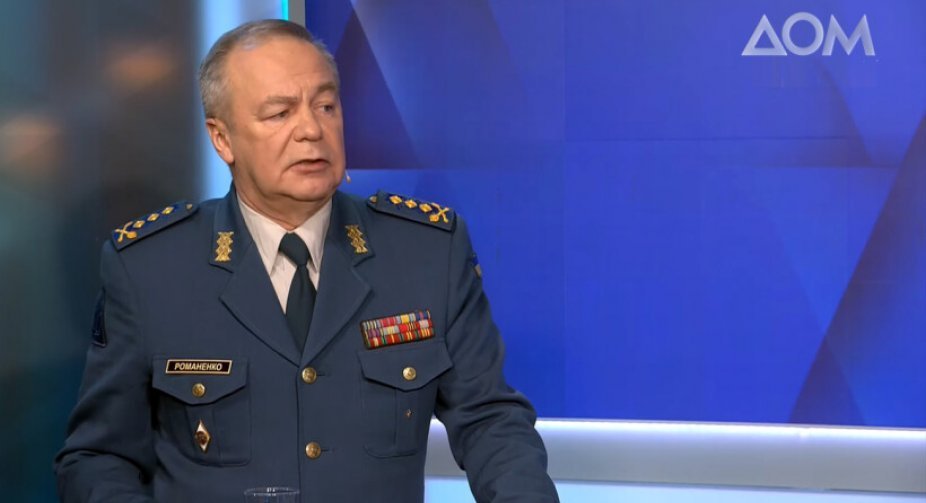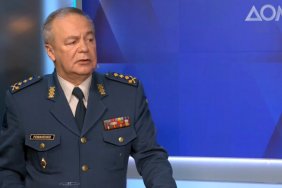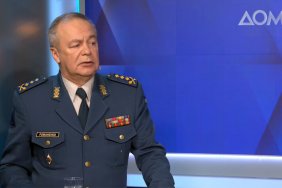In the confrontation with Russia, a positive change is emerging for Ukraine. Moreover, in conditions of severe sanctions against the military-industrial complex and significant losses of equipment and personnel, the Russian Federation is in principle unable to set up support for military forces at the level before February 24, 2022.
For Ukraine, on the other hand, additional resources have been allocated, and replenishments and volunteers from partner countries are ready to use combat experience on a professional level to help our country. What awaits us in the theater of military operations - a conversation of FrontNews - Ukraine with Lieutenant General, former Deputy Chief of the General Staff of the AFU, Candidate of Military Sciences Igor Romanenko.
FN: Igor Aleksandrovich, could you assess the actions of Russian troops on the territory of Ukraine? Evaluate the mobilization reserves of the Russian Federation?
IR: It is already clear that the set goals have not been achieved. And this greatly irritates the Russian leadership. But Putin is not backing down. That is why I think there may be some precedents for the use of point nuclear strikes. The NATO military forces are also getting ready for such a development. Given the current situation, there is no decision for Putin to use nuclear weapons.
Putin is gathering resources and preparing a second military operation. It's also possible that he might be satisfied with a truce that is being prepared at the moment.
If we talk about the mobilization reserves - in the case of a quick mobilization, the quality of professional military training will be low. But since there is a possibility to throw people to death in huge numbers, somehow this quantity, according to the laws of philosophy, can turn into quality. And this is dangerous for us.
Now there is another wave of mobilization in Ukraine as well. These are mostly people with experience. I believe that military specialists should be used as effectively as possible. We are also talking about fully providing them with all available weapons and equipment.
FN: At this point it is already clear that the shelling of civilian infrastructure will continue. What other conclusions can you draw?
IR: Artillery shelling, of course, remains, but the Russian army has simply run out of resources. Otherwise, they would be happy to use. They used it sadistically. Some attempts were made all over Ukraine, but now the resource is already limited, so they do it in areas where they temporarily have prospects of reaching the target, such as Kharkiv, Mariupol, Mykolaiv, and Kiev in the first place.
FN: If we talk about the forces that are in the Black Sea. What is your opinion - most likely they will attack only if the corridor is broken through by land?
IR: If the resistance is suppressed on land, if one bomb is dropped on Odesa and an attack is made at that time, then the situation could change. If you use tactical nuclear weapons in this way, for example. If you don't do that, I think there will be a bad prospect and big losses for the Russian army.
FN: What are the best steps you see us making on the diplomatic front and on the military front lately? What do you see as the most significant achievements?
IR: I consider a military achievement to be the disruption of the enemy's plans. The first strategic goals of the Russian Federation are not achieved. There is information that they also liberate Kherson, because the issue is not resolved. After all, they need not only to capture the city. They need to organize a joint demonstration and set up an administration. They are not able to do it in any major city. So this blitzkrieg is thwarted. The goals have not been achieved, and our armed forces are counterattacking in some areas, saying: we have the capabilities to do this, we have the experience, and during these battles the force is on our side.
Moreover, the Russian Federation's reserves are largely exhausted, somewhere they go on the defensive, and our troops launch counterstrikes. This is very important. This is an example of what happened in the morning of March 16 in the North-Western direction near Kiev. Our troops repulsed the enemy for 10 km. This is the area of Irpen, Bucha, Gostomel and so on. Not only in this direction, but also in others. These were counterstrikes, near Kharkov there were strikes in a number of directions. Such important significant signals allow us to have a perspective due to coordinated actions.
There are changes in the military-diplomatic direction as well. Four meetings have not brought significant changes, except for the humanitarian corridors that the Putinists are disrupting. They only brought results because of the active actions of our armed forces. The Russians have to reckon with this and look for compromises.
So they say: yes, a cease-fire has supposedly been achieved. At least the tone has changed and both sides are finding compromise approaches, so to speak, about a transition to at least a cease-fire, and maybe even to a cease-fire in general.
FN: And if such positive forecasts don't come true. Could you predict what the steps of our military will be next week?
IR: To fight, to fight to the death. We have no other option. The allies have to understand that it's time to help with the weapons they need in the first place, and with all weapons in general. They also still have opportunities for sanctions. Such as I see, for example, closing ports. But there is a hitch in the fact that in the history of states and wars in the world, such actions are seen as the beginning of the transition to war.
As a matter of fact, the partners may again tremble. They are afraid to take the path of serious support. After all, then these are serious sanctions against the Russian Federation.
FN: Do you think that further economic pressure, including sanctions, could bring EU countries into the confrontation between Ukraine and Russia?
IR: I think it's all on the verge. If they close the sky - the situation will be on the verge.
Our partners are not willing to provide equipment, they agree, then refuse. Why? Because they think that even such a step as providing equipment, namely fighters and medium-range surface-to-air missile systems, is a move on a knife edge. The Russians have indicated that they would consider military support actions as the beginning of a war. Our partners are afraid, so they are doing what we have seen recently. This includes the topic of tanks and the banning of Russian ships from entering ports.


